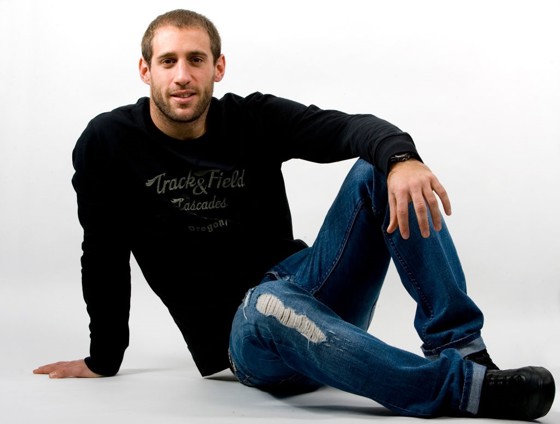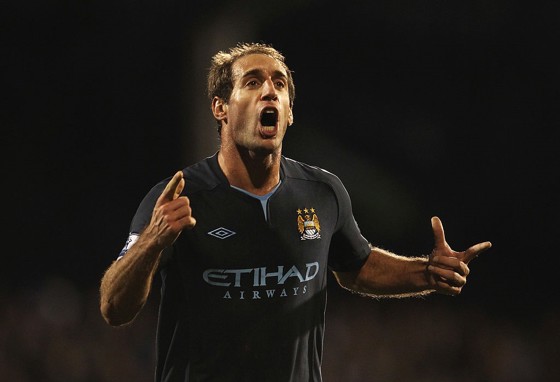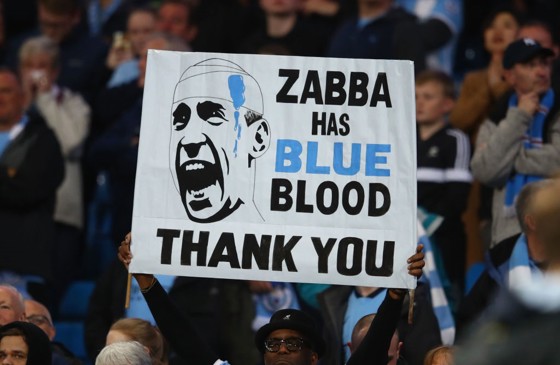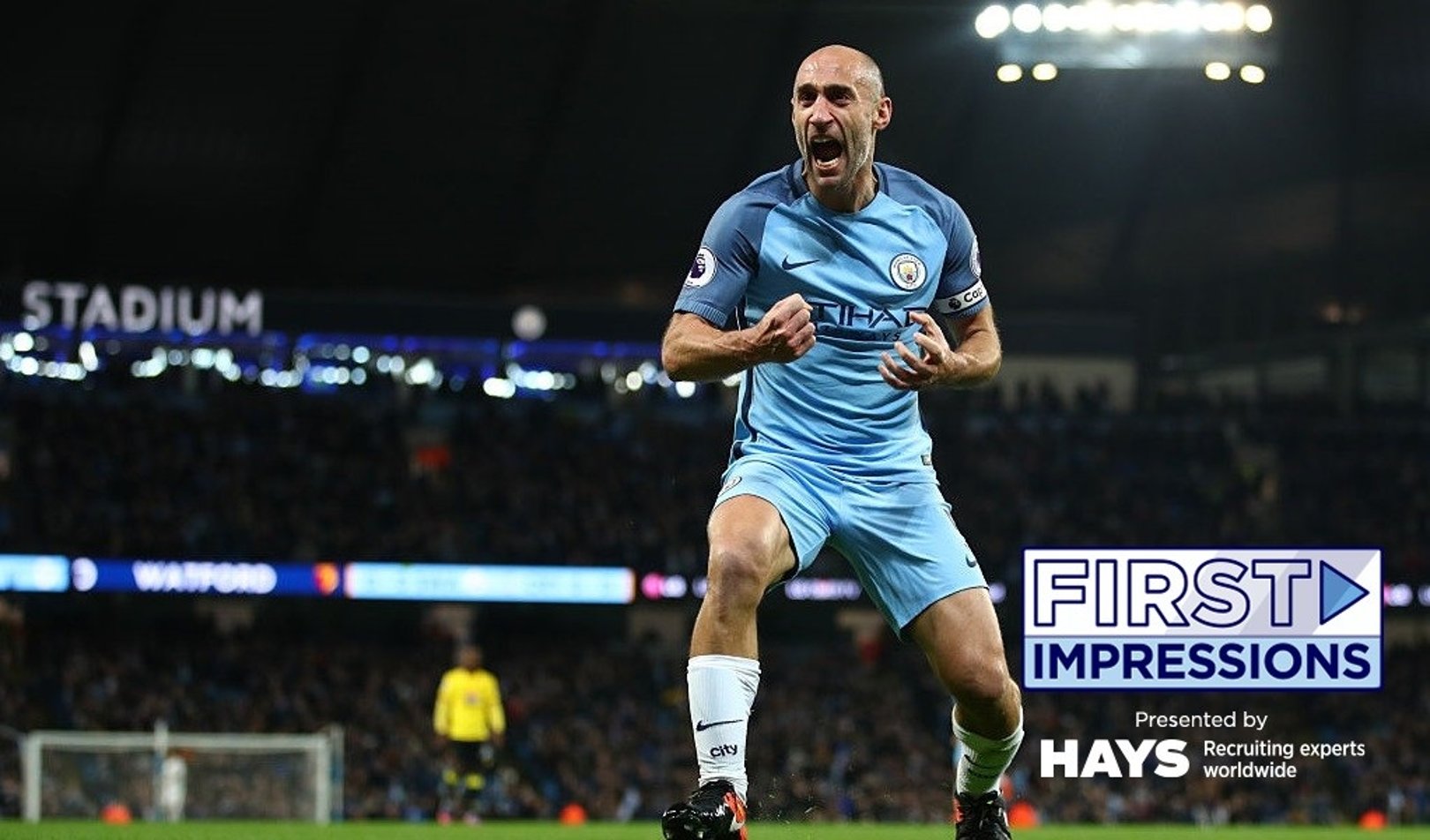There are few more exciting places to visit in the Americas than Buenos Aires, capital city of Argentina. Home to more than three million people, the crowded metropolis was a far cry from the peaceful semi-rural town of Arrecifes, some two hours away where Pablo Zabaleta spent his early years.
Football and horse riding was the daily staple for the young Zaba before an invitation to join Boca Juniors meant leaving home at the tender age of 12 and relocating in a club apartment in the centre of downtown Buenos Aires.
It would be the first of three major cities Zaba would live in, with Barcelona and Manchester to follow for the future City defender.
“I grew up in Arrecifes,” he began. “It is around 200km from Buenos Aires and is a typical small Argentinian town with a population of maybe 25,000 people. My family still live there, in fact.
“It was the first house for my parents, and my father and my step mum still live there. It isn’t big, but it is quite nice and has everything we needed. It’s just right.”
Arrecifes was given city status in 1950 and is known for its cattle ranches and farms – a million miles from the bright lights of the big cities.
Zaba lived in the family home with his parents - businessman Jorge and mother, Laura, who sadly died in 2000 - and his siblings. He said: “I am the oldest. I have one brother and a sister, Lucia. Gianluca is my little half-brother because my father re-married a few years ago.
“Gianluca is only five, so there is a 20 year age gap! He was born just as I went to live in Spain to play for Espanyol. It was difficult to bond together initially because I was like a stranger to him living so far away and seeing him once a year.
“I am only in Argentina for 10 to 15 days a year so it’s taken time for him to know who I am, but we are very close now. He can speak well now, so we talk a lot on the phone and I think he likes the fact his big brother plays for Argentina.”
Zaba’s grandparents lived in an even more rural setting than he did, on a ranch out near the hills. He spent many happy hours playing there, riding horses and helping out on what was quite a large property. It is a time he clearly remembers with great affection.

“I went to see my grandparents in the summer and over the weekends, as they have horses that I used to ride, and it was a good place to be,” he said. “The summers were long and hot and it was the perfect place for any kid to be. Over time, the size of the place became a problem for my grandparents and they rented their home out, moving closer to town and downsizing. Hopefully, I will own it one day when I am retired – that would be an ideal scenario because we could then keep what is a very special place in the family.”
Zaba’s love of football was never far away during his formative years and he took every opportunity to kick a ball in Arrecifes.
“In Argentina, you have a lot of space to play on the street, or in gardens, or at the park,” he said. “We played on any space we could find in our neighbourhood after school. I called on my friends and went to play. It was quite a safe area to live in, but I had to leave when I was scouted aged 10 or so.
“There are only a few football teams in Arrecifes and my junior team coach came to me to say that I had quality and that I should try my luck in the city. My father agreed it would be best and I so I joined went to Buenos Aires side San Lorenzo when I was 12 years old. It would have been tough to break into a team like Boca Juniors or River Plate and my father felt I’d have a better chance of progressing at a smaller club.
“It was a big change for me and I lived with all the other youngsters in a house owned by the club but they didn’t have a lot of money for the young players to live comfortably.
“The food was always the same: spaghetti, chicken, oranges - just cheap food. My parents knew it was difficult and were there for me whenever they could get to Buenos Aires. My father gave me a small allowance that meant I could vary what I ate and he would sometimes take me to restaurants to eat different types of food. I was very lucky that we had the money to do that.”

Outings for the young Pablo didn’t always end with eating, as football-mad Jorge eventually took Pablo to watch his first football match at his beloved Boca Juniors.
“My dad went all the time to watch Boca with his friends, and one day he took me with him,” he recalled. “I remember one of my dad’s friends was an Independiente fan – the team Boca were playing that day - and as he was stood with us in the home section, he had to pretend he was a home supporter.
“Independiente won 1-0 and when they scored the guy was very quiet! In Argentina we take sport very seriously and it would have been a bad idea to reveal his true colours – he’d have never made it out alive!
“It was a great experience as the Bombonera is an iconic ground, and I enjoyed it, especially the tickertape receptions they used to get – we should try it at City one day!
“But as I say, San Lorenzo was my first choice and so I went there for training. The manager seemed to like me and wanted me to stay so I signed a contract and was off and running. I’ve played at the Bombonera twice, and it is very exciting to see all the fans there and I think my father enjoyed seeing me play, even though it wasn’t in the colours of Boca. One thing I’d love to do, but haven’t as yet, is to go to what we call a ‘Clasico’ between River Plate and Boca game in the flesh. They are passionate, exciting games and it’s on my to-do list.”
Right now, Zabaleta is happy in Manchester and has no plans to move on anytime soon.
“I feel comfortable here, and I want to stay for a long time,” he said. “If you see the squad, it makes you feel positive as it gives us a lot of possibilities to win something this year, but for that we need to fight in every game, for our fans and for ourselves. The fans have been incredible towards me, almost from day one.
“Football changes all the time. I wanted to come and play in England as it was an ambition of mine. Now I am playing here and I’m really happy and have three years left on my contract. Now all we have to do is bring some silverware back to the club.”

What happened next? Later that season, Zaba helped City win the FA Cup – our first major trophy for 35 years and was part of the backbone of the team that then went on to win the Premier League in 2012 and 2014, as well as the League Cup in 2014 and 2016. By the time he left for West Ham in 2017, he’d spent nine years with City and played 333 games, scoring 12 goals, establishing himself as a genuine Manchester City legend in the process.







